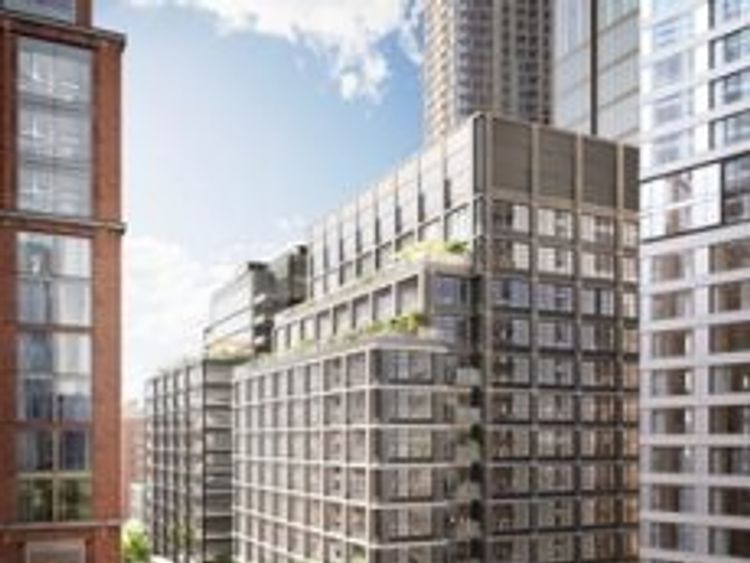The tech sector has been one of the more vocal voices in business calling for the UK to retain full access to skilled migrant workers after Britain leaves the EU.
Migrant workers, many from the EU, have played a large part in UK tech's success and many in the sector fear for its prospects if a substantial number leave post-Brexit.
Today, however, comes a huge vote of confidence in the UK tech sector's prospects over the next decade.
Canary Wharf Group, the property giant behind the transformation of London's Docklands, has unveiled the latest part of the development – a five million sq ft mixed-use project named Wood Wharf.
At its heart, will be two million sq ft of office space specifically designed for fast-growth businesses in the tech and creative sectors. Canary Wharf Group estimates that some 20,000 people in the sectors will work in the development.
Sir George Iacobescu, chairman and chief executive of Canary Wharf Group, said: "Canary Wharf has reinvented London's business landscape once and, with Wood Wharf, we intend to do so again for the era of fast growth tech and creative businesses.
"With the intention of creating 20,000 jobs, this will be a major investment into London's infrastructure and a home for the people shaping the future of this great city."
Central to the development will be the construction of 3,600 new homes. This is a major and significant departure for Canary Wharf which, to date, has only ever built office and retail space.
Richard Archer, managing director of offices at Canary Wharf Group, says this means many of the people working at Wood Wharf will be able to live near their place of work.
This, he argues, is a logical development given the way that people in the tech sector, particularly those in their 20s and early 30s, live – with the boundaries between home and work increasingly blurred.
Moreover, with London suffering from an acute housing shortage, it is hoped that offering such accommodation will save workers a lengthy commute.
A quarter of the new homes being built will be affordable housing and the development will also include a new primary school with places for 420 children and a doctor's surgery.
The hope is that the development will have the feel of a neighbourhood community in a way that the existing Canary Wharf estate, into which more than 120,000 people commute daily, does not.
The office and retail space on the 23-acre site will also have a very different feel from the existing Canary Wharf estate.
Wood Wharf will contain fewer high-rise structures and more low-rise buildings specifically designed to attract IT companies. The developer also hopes that there will also be a greater proportion of independent shops and restaurants opening there so that Wood Wharf has the same quirkiness that Shoreditch and Old Street, where most of London's current tech start-ups are currently based, possess.
Companies taking space are also being offered some of the fastest download speeds in the UK. The mobile operator EE, part of BT, recently launched the UK's first live trial of 5G services in Canary Wharf and it is expected that, once 5G is rolled out, Wood Wharf will be among the first places in the country to benefit.
The focus on attracting tech companies may surprise many people who associate Canary Wharf with financial services.

It is true that, in previous years, getting on for between two-thirds and three-quarters of businesses taking space in Canary Wharf were in the financial services sector. But in recent years, financial services firms have accounted for just under half the office space being taken there, with tech, media and telecoms (TMT) companies moving into the majority.
Canary Wharf is now reckoned to have one of the largest concentrations of IT workers in Europe and the aim is that, as some of the tech start-ups attracted to Wood Wharf expand, they will eventually move onto the original Canary Wharf estate.
However, with such uncertainty over the availability of skilled migrant labour for the UK tech sector, will the space be taken?
Mr Archer has no doubt. Nor does Jacqueline de Rojas, president of techUK, the trade body representing nearly 1,000 tech companies.
She said: "London's tech sector has grown at an extraordinary rate over the past five years. Tech companies have consistently broken records in terms of investment, job creation and revenue growth.
More from Business
"The city needs infrastructure to accommodate this rapid expansion and Wood Wharf seems the perfect environment for start-ups and scale-ups with global ambitions."

April this year marked the 30th anniversary of Margaret Thatcher driving the first pile in the Canary Wharf development – marking the beginning of a transformation of semi-derelict land still bearing the scars of the Blitz into one of Europe's biggest office and retail developments. Wood Wharf, due to be completed in 2023, shows that the story is far from all over.
[contf] [contfnew] 
Sky News
[contfnewc] [contfnewc]







